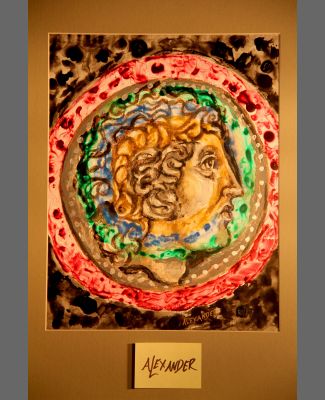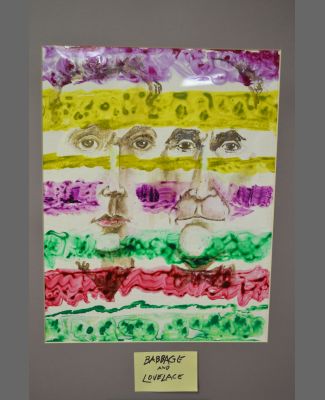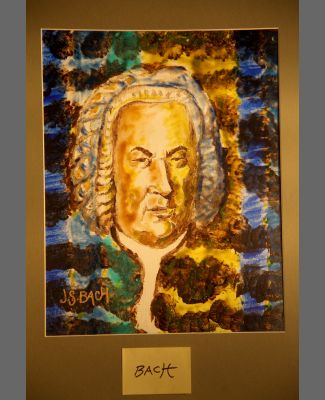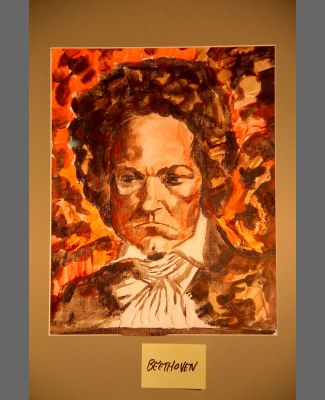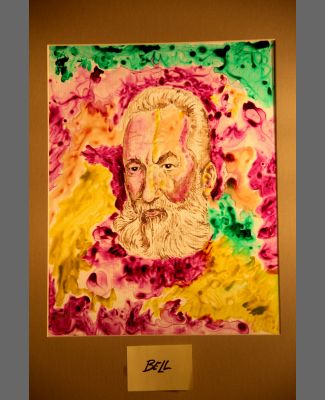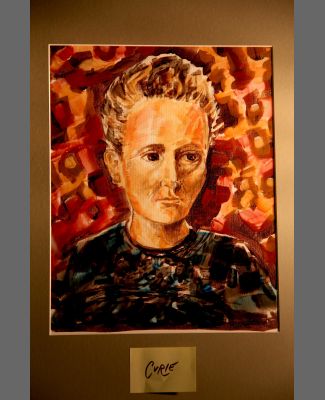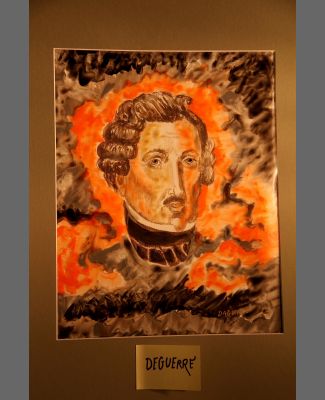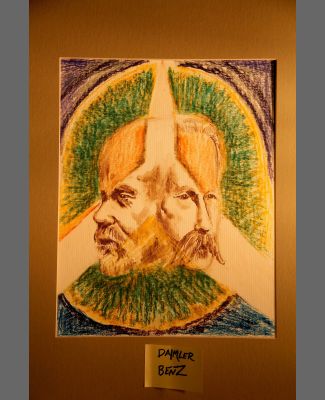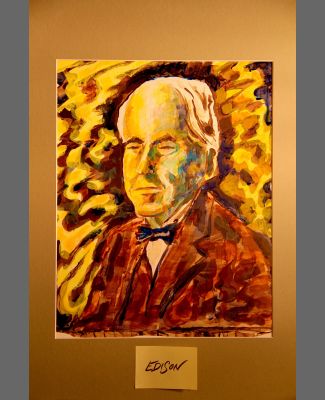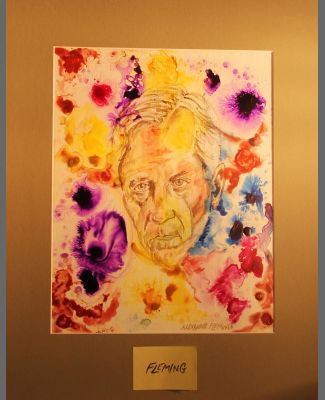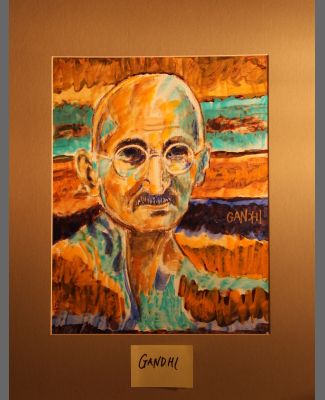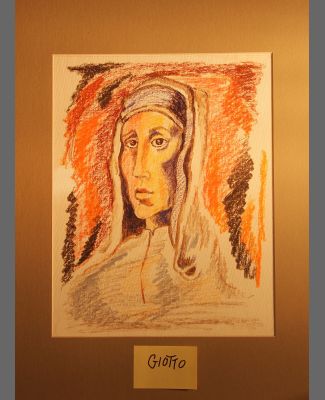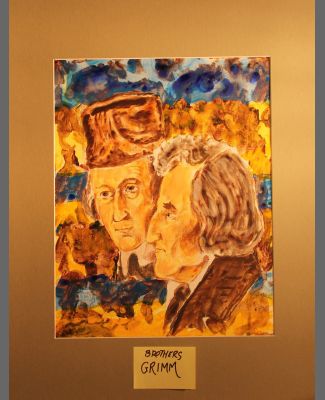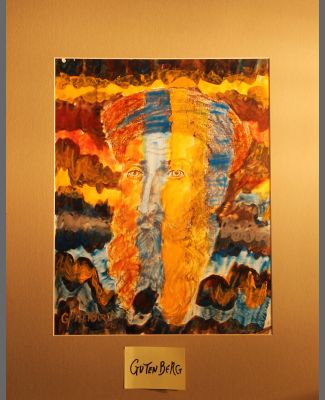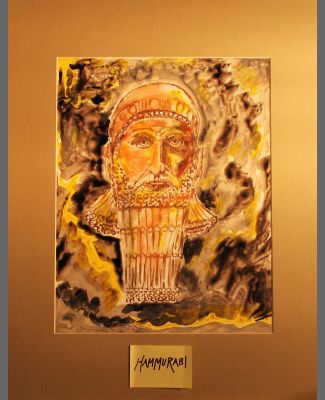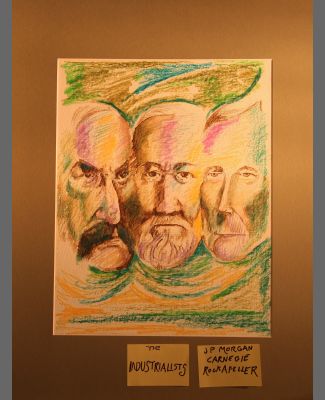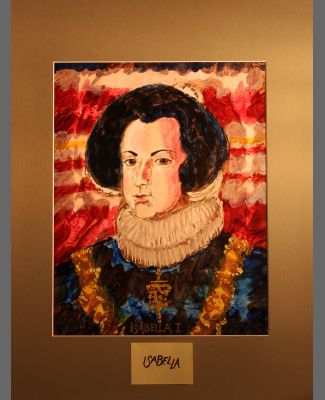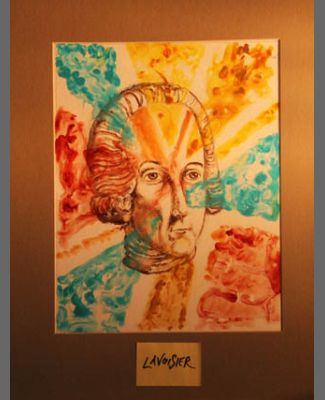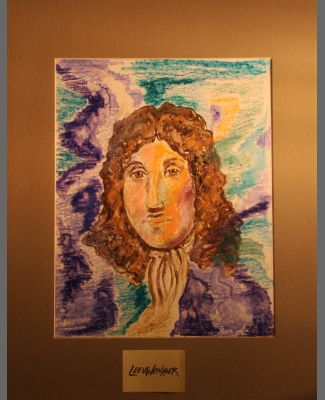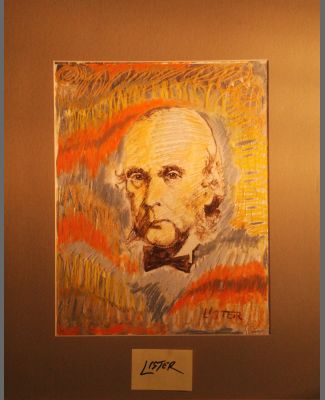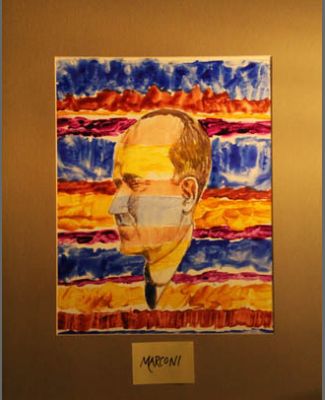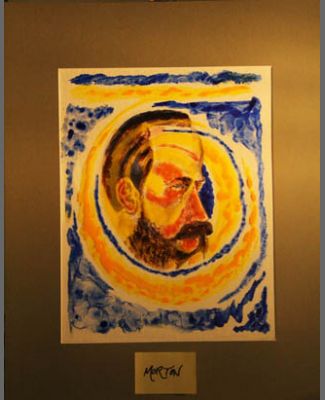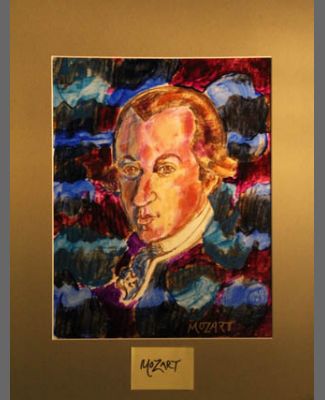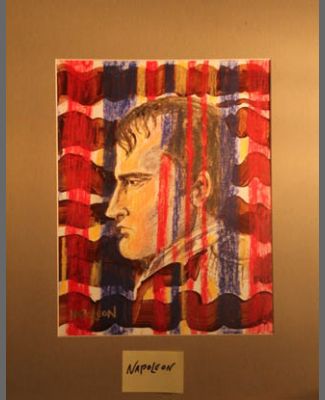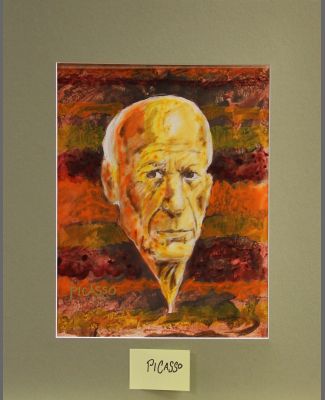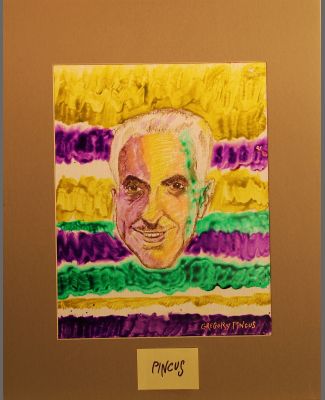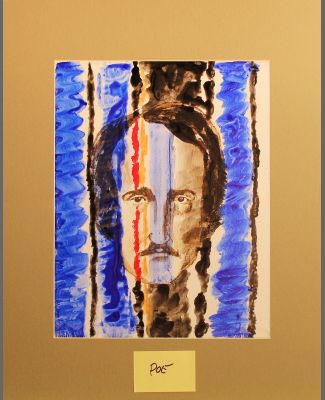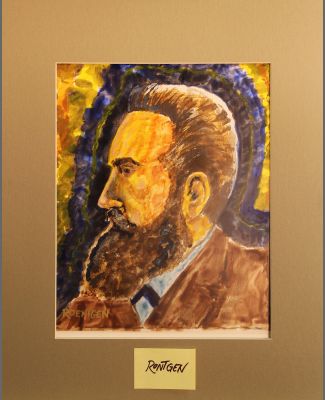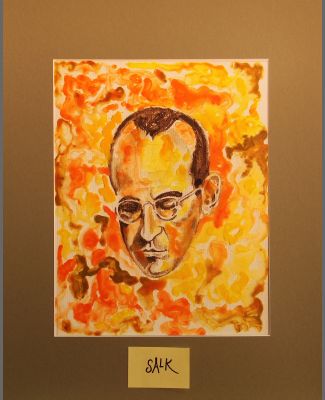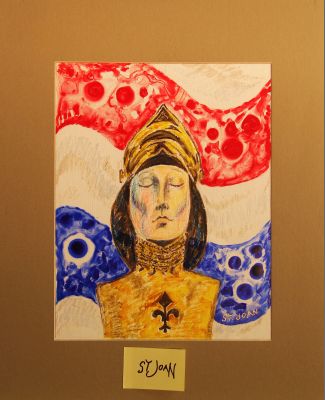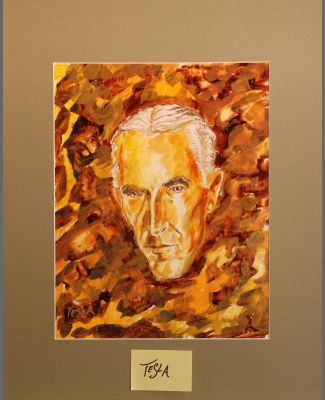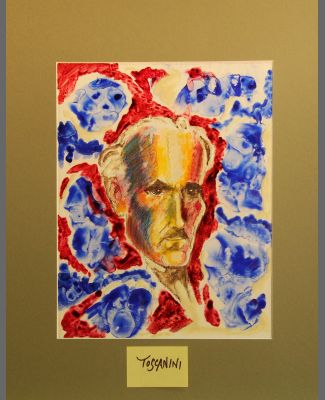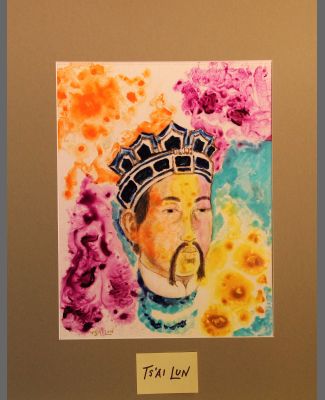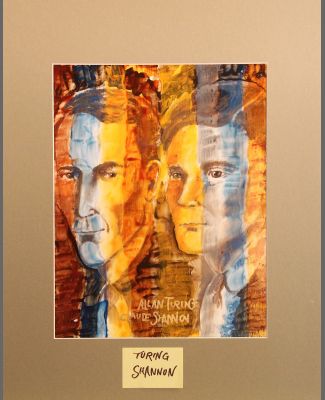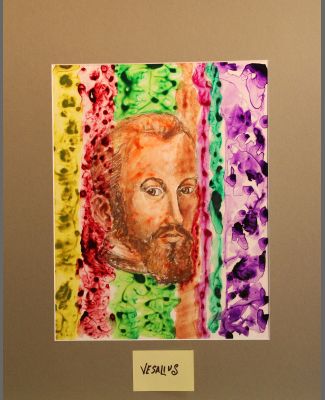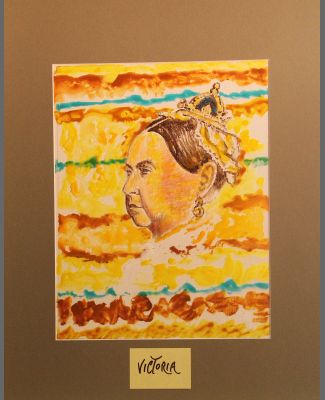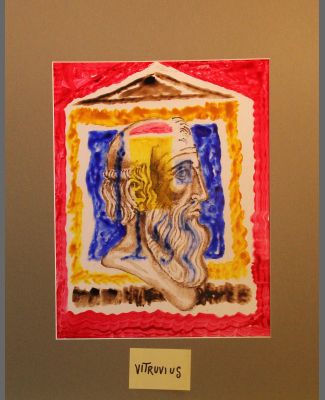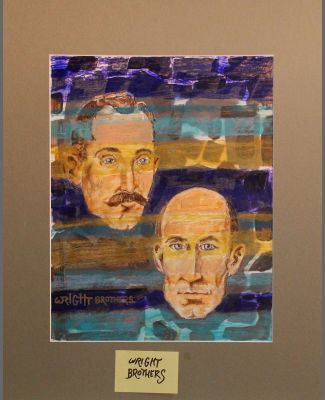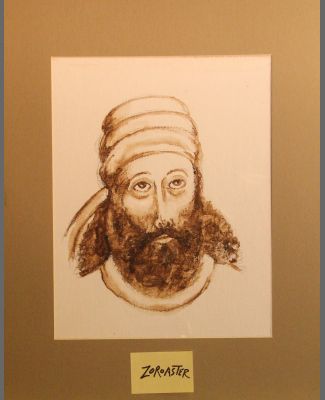|
Greek king who created one of the largest empires of the ancient world, undefeated in battle and considered one of history's most successful commanders. American civil rights leader who played a pivotal role in the 19th century women's rights movement for women's suffrage in the US. She was co-founder of the first Women's Temperance Movement with Elizabeth Cady Stanton. Greek philosopher, student of Plato and Socrates (Plato's teacher), first to create a comprehensive system of Western philosophy, morality, aesthetics, logic, science, politics, and metaphysics. One of the most popular and widely read English novelist whose realism and biting social commentary gained her historical importance among scholars and critics. English mathematician who proposed the concept of a programmable mechanical computer and is widely considered to be the "father of the computer". Ada Lovelace German composer, organist, harpsichordist, and violinist of the Baroque Period. Bach wrote music revered for its intellectual depth, technical command, and artistic beauty. German composer and pianist who was a crucial figure in the transition between the Classical and Romantic eras, he remains one of the most famous and influential of all composers. Eminent American scientist, inventor, engineer, and innovator who is credited with inventing the first practical telephone. Roman General and Statesman and a distinguished writer of Latin prose. He played a critical role in the gradual transformation of the Roman Republic into the Roman Empire. French fashion designer, founder of the Chanel brand whose modernist thought, practical design, and pursuit of expensive simplicity made her an influential figure in 20th-century fashion. English comic actor and filmmaker who rose to fame in the silent film era. Chaplin became a worldwide icon through his screen persona "the Tramp" and is considered one of the most important figures of the film industry. Queen of ancient Egypt, one of the famous female rulers in history. Her family ruled Egypt for more than 100 years, she was one of the most well-known ancient Egyptians. Founder of Confucianism. A Chinese thinker and social philosopher, whose teachings and philosophy have deeply influenced Chinese, Korean, Japanese, Vietnamese and Indonesian thought and life. Mathematician and astronomer who proposed that the sun was stationary in the universe and the earth revolved around it. Copernicus was known as the initiator of the Scientific Revolution. First woman scientist to win the Nobel Prize for science as one of the great scientists of the 21st century. As a physicist she discovered radium and invented the first mobile x-ray machine. French painter, printmaker, scientist most famous for the invention of photography. Each daguerreotype was a one-of-a-kind image on a highly polished, silver-plated sheet of copper. German mechanical engineers who designed and built the world's first practical automobile to be powered by an internal-combustion engine. was a major Italian poet of the Middle Ages. His Divine Comedy is considered the greatest literary work composed in the Italian language and a masterpiece of world literature. Naturalist who formulated the Theory of Evolution and the process of Natural Selection and published these theories in âOn the Origin of the Speciesâ. French philosopher, mathematician, scientist and writer considered the Father of Modern Philosophy-"I think, therefore I am."� American dancer and artist-she is regarded as the Mother of Modern Dance. Duncanâs philosophy of natural movement restored dance to a high art form instead of entertainment. American Inventor with 1,093 U.S. patents, invented many devices that greatly influenced life-the phonograph, transmitter for the telephone, electric light bulb, and motion-picture camera. German theoretical physicist, best known for his theory of relativity and specifically mass-energy equivalence, expressed by the equation E = mc2. Scottish biologist and pharmacologist known for his discovery of the antibiotic substance penicillin for which he shared the Nobel Prize in Medicine. American industrialist, founder of the Ford Motor Company, invented the assembly line for automobile manufacturing, and designed the famous Model T. German school girl who gained international fame posthumously for her âDiary of a Young Girlâ-the most moving and widely read first-hand account of the Jewish experience of the Holocaust. One of the key Founding Fathers of the United States, inventor, philosopher, writer, statesman, and economist. A major figure in the American Enlightenment with his theories regarding electricity he invented the lightning rod, bifocals, the Franklin stove. an Austrian neurologist who became known as the founding father was a psychoanalyst best known for his theory of the unconscious. Italian astronomer, physicist, mathematician called the father of modern observational astronomy, physics, and science. Accurately described heliocentric solar system and improved the telescope. Commonly known as Mahatma was the most prominent political and spiritual leader of Indian nationalism in British-ruled India in 20th century. Italian painter of the Middle Ages was the first great artist of the Italian Renaissance who made a decisive break with the Byzantine style and initiated the technique of drawing figures according to nature. German academics, linguists, cultural researchers, and authors who collected folklore. They are among the most well-known storytellers of European folk tales. German inventor and printer who invented the mechanical printing press and developed movable type and the first printed the Bible. Babylonian King who extended his empire and control over Mesopotamia. Hammurabi is known for the set of laws called Hammurabi's Code, one of the first written codes of law in recorded history. Ancient Greek physician called the father of medicine. He changed the course of medicine with his certainty that disease was not caused by gods but was the result of natural action. J. P. Morgan (1837-1913)-American financier, banker, and philanthropist who dominated corporate finance and industrial consolidation. John D. Rockefeller (1839-1937)-American industrialist and philanthropist who founded the Standard Oil Company, which dominated the oil industry and was the first great U.S. business trust. Andrew Carnegie (1835-1919) - American industrialist who led the enormous expansion of the American steel industry in the late 19th century. Queen of Castile and Aragon, who unified Spain. She is best known as the Queen who financed the voyages of Columbus. American Founding Father, the principal author of the Declaration of Independence, the third President of the United States and with James Madison he organized the Democratic-Republican Party. American author, political activist, and lecturer. She was the first deaf/blind person to earn a Bachelor of Arts degree. The story of Keller and her teacher, Anne Sullivan, breaking through the communication barrier has become widely known through the play and film The Miracle Worker. Leader of Mongolia and one of history's great rulers, who conquered most of Eurasia in the early thirteenth century. American clergyman, activist, and prominent leader in the American Civil Rights Movement. He is known for his role in the advancement of civil rights using non-violent civil disobedience. French nobleman and chemist central to the 18th-century Chemical Revolution and a large influence on chemistry and biology. He is widely considered to be the "Father of Modern Chemistry." Dutch tradesman and scientist known as "the Father of Microbiology", and considered to be the first microbiologist. Italian Renaissance painter, sculptor, architect, scientist-described as the archetypal Renaissance Man, a man of "unquenchable curiosity" and "feverishly inventive imagination."� 16th American President, Lincoln successfully led his country through its greatest constitutional, military, and moral crisis-the American Civil War-preserving the Union while ending slavery. British surgeon and pioneer of antiseptic surgery, who promoted the idea of sterile surgery. He advanced modern medicine by introducing sterilization of surgical instruments for a reduction in post-operative infections and safer surgery. widely known as the Father of Classical Liberalism, was an English philosopher and physician regarded as one of the most influential of Enlightenment thinkers. German monk, priest, professor of theology and iconic figure of the Protestant Reformation, and founder of Protestantism and Lutheranism. British scholar, influential in political economy and demography, Malthus popularized the economic theory of rent. He became hugely influential to evolutionary biologists Charles Darwin for whom Malthusianism became an intellectual stepping-stone to the idea of natural selection. South African anti-apartheid revolutionary and politician who served as President of South Africa from 1994 to 1999. As the first black South African to hold the office, and the first elected in a fully representative, multiracial election his government focused on dismantling the legacy of apartheid. Italian inventor, known as the father of long distance radio transmission and for developing Marconi's law and a radio telegraph system. Marconi is often credited as the inventor of radio. German philosopher, economist, sociologist, and revolutionary socialist. His ideas developed social science and the socialist movement with his The Communist Manifesto-founder of Marxism. Italian Renaissance sculptor, painter, architect, poet, and engineer who exerted an unparalleled influence on the development of Western art-considered one of the greatest artists of all time. Prolific and influential German composer of the Classical era-composed over 600 works acknowledged as pinnacles of symphonic, chamber, operatic, and choral music. He is among the most enduringly popular classical composers. French military and political leader during the French Revolution. His legal reform, the Napoleonic Code, had a major influence worldwide. Due to his success in the Napoleonic Wars he is generally regarded as one of the greatest military commanders of all time. English scientist, physicist, mathematician, astronomer, natural philosopher, alchemist, and theologian. His law of universal gravitation and three laws of motion laid the groundwork for classical mechanics. German philosopher who challenged the foundations of Christianity and traditional morality. Central to his philosophy is the idea of âlife-affirmation,â which involves an honest questioning of all doctrine that drain life's expansive energies, however socially prevalent those views might be. English nurse and writer came to prominence for her pioneering work in nursing during the Crimean War. She was dubbed "The Lady with the Lamp" after her habit of making rounds at night. Nightingale laid the foundation of professional nursing with a school of St Thomas' Hospital in London. 44th President of the United States and the first African American to hold the office. Obama was named the 2009 Nobel Peace Prize laureate. American track and field athlete who specialized in sprints and long jump and participated in the 1936 Summer Olympics in Berlin, Germany. He achieved international fame and poignant victory often noted because Adolf Hitler had intended the games to showcase his Aryan ideals and prowess. African-American civil rights activist, whom the U.S. Congress called "the first lady of civil rights", and "the mother of the freedom movement". French chemist and microbiologist who founded medical microbiology. He is remembered for his remarkable breakthroughs in the causes and preventions of diseases-he created the first vaccines for rabies and anthrax. He was best known for inventing a process eventually known as pasteurization. Spanish painter, sculptor-one of the greatest and most influential artists of the 20th century, he is widely known for co-founding the Cubist movement, the invention of constructed sculpture, the co-invention of collage, and for the wide variety of styles that he helped develop and explore. American biologist and researcher who co-invented the oral contraceptive pill. Who along with Min Chueh Chang and Margaret Sanger changed the face of human contraception worldwide. Greek philosopher, mathematician, student of Socrates, and founder of the first institution of higher learning in the Western world. Along with his mentor, Socrates, and his student, Aristotle, Plato helped to lay the foundations of Western philosophy and science. American author and poet considered part of the American Romantic Movement. Best known for his tales of mystery and the macabre, Poe was one of the earliest American practitioners of the short story and is considered the inventor of detective fiction and the genre of science fiction. American painter and a major figure in the abstract expressionist movement. He was well known for his uniquely defined style of drip painting. German physicist, who produced and detected electromagnetic radiation in a wavelength range known as X-rays an achievement that earned him the first Nobel Prize in Physics in 1901. American medical researcher and virologist, best known for his discovery and development of the first polio vaccine. English poet and playwright, widely regarded as the greatest writer in the English language and the world's pre-eminent dramatist. His plays have been translated into every major living language and are performed more often than those of any other playwright. Scottish philosopher who became famous for his book, âThe Wealth of Nationsâ, which had a profound influence on modern economics and concepts of individual freedom-theories led to capitalism. Greek philosopher credited as one of the founders of Western philosophy. Socrates has become renowned for his contribution to the field of ethics, and it is this Platonic Socrates who also lends his name to the concepts of Socratic irony and the Socratic method. American writer, poet, playwright, and art collector who spent most of her life in France. She is famous for her "stream of consciousness" and sometimes "cyclical" or "circular" manner of expressing things. was an American abolitionist and author. Her novel Uncle Tom's Cabin (1852) was a depiction of life for African-Americans under slavery; it reached millions as a novel and play, and energized anti-slavery forces in the American North. French folk heroine and a Roman Catholic saint. Claiming divine guidance, she led the French army to several victories during the Hundred Years' War. She was captured and burned at the stake for heresy-and was immortalized by many famous writers and composers who created works about her life. Russian composer, pianist, and conductor. He is considered by many to be one of the most important and influential composers of the 20th century. Stravinsky's compositional career was notable for its stylistic diversity. Ancient Chinese military general, strategist and philosopher who is traditionally believed to be the author of The Art of War, an influential ancient Chinese book on military strategy. Serbian-American inventor, physicist, mechanical engineer, electrical engineer, and futurist. He is best known for his contributions to the modern alternating current (AC) electrical supply system. Tesla's patents and theoretical work helped form the basis of wireless communication and radio. Italian musician and iconic conductor of the late 19th and early 20th century, renowned for his intensity, perfectionism, orchestral detail and sonority, and his photographic memory. He was the music director of La Scala in Milan, the New York Metropolitan Opera and Philharmonic Opera. Chinese political official regarded as the inventor of paper and the papermaking process-as opposed to papyrus. Although early forms of paper had existed in China he was responsible for the first significant improvement and standardization of papermaking. Computer Scientists influential in the development of computer science with the Turing machine-a model of a general purpose computer-also credited with founding both digital computer and digital circuit design theory. Dutch anatomist, physician, and author of one of the most influential books on human anatomy, On the Structure of the Human Body. Vesalius is referred to as the founder of modern human anatomy. was the monarch of the United Kingdom of Great Britain and Ireland for six decades naming the Victorian Era. She witnessed a revolution in British government, huge industrial expansion and the growth of a worldwide empire under her stern reign. Roman author, architect, and engineer best known for his multi-volume work entitled De Architectura (The Ten Books on Architecture), the first treatise on architecture. Vitruvius is famous for asserting that a structure should exhibit three qualities, it must be solid, useful, and beautiful-the Vitruvian Triad. German dramatic composer, conductor, theatre director and theorist primarily known for his operas who had a revolutionary influence on the course of Western music. First President of the United States of America, serving as the commander-in-chief of the Continental Army during the American Revolutionary War. He also presided over the convention that drafted the Constitution and the capital of the United States is named for him. American architect and interior designer who designed more than 1,000 structures and completed 500 works. Wright believed in designing structures in harmony with humanity and its environment, a philosophy he called organic architecture. American brothers, inventors, and aviation pioneers credited with inventing and building the world's first successful airplane. Credited with the first controlled, powered, and sustained human flight. Persian prophet who founded the first world religion-Zoroastrianism. He is said to have received a vision from the Wise Lord, who appointed him to preach his message of strife between the God of Light and the principle of evil. According to the prophet, man had been given the power to choose between good and evil. This dualism was part of an evolution towards the monotheism of todayâs religions. Moses (1291-1271 BC), according to the Hebrew Bible, the Qur'an, and Baha'i scripture, Moses was a religious leader, lawgiver, and prophet, to whom the authorship of the Torah is traditionally attributed. Called Moshe "Moses our Teacher/Rabbi", he is the most important prophet in Judaism; he is also an important prophet in Christianity and Islam, as well as a number of other faiths. The existence of Moses as well as the veracity of the Exodus story are disputed amongst archaeologists and Egyptologists, with experts in the field of biblical criticism citing logical inconsistencies, new archaeological evidence, historical evidence, and related origin myths in Canaanite culture. Other historians maintain that the biographical details and Egyptian background attributed to Moses imply the existence of an historical political and religious leader who was involved in the consolidation of the Hebrew tribes in Canaan towards the end of the Bronze Age. Jesus (7-2 BC to 30-33 AD), referred to as Jesus of Nazareth, is the central figure of Christianity, whom the teachings of most Christian denominations hold to be the Son of God. Christians believe Jesus to be the awaited Messiah of the Old Testament and refer to him as Jesus Christ or simply Christ, a name that is also used by non-Christians. Virtually all modern scholars of antiquity agree that a historical Jesus existed, although there is little agreement on the reliability of the gospel narratives and their assertions of his divinity. Most scholars agree that Jesus was a Jewish preacher from Galilee, was baptized by John the Baptist, and was crucified in Jerusalem on the orders of the Roman prefect, Pontius Pilate. Scholars have constructed various portraits of the historical Jesus, which often depict him as having one or more of the following roles: the leader of an apocalyptic movement, Messiah, a charismatic healer, a sage and philosopher, or an egalitarian social reformer. Christians believe that Jesus was conceived by the Holy Spirit, born of a virgin, performed miracles, founded the Church, died by crucifixion as a sacrifice to achieve atonement, rose from the dead, and ascended into heaven, from which he will return. The great majority of Christians worship Jesus as the incarnation of God the Son, the second of three Persons of a Divine Trinity. In Islam, Jesus (commonly transliterated as Isa) is considered one of God's important prophets. To Muslims, Jesus is a bringer of scripture and the child of a virgin birth, but neither divine nor the victim of crucifixion. Judaism rejects the belief that Jesus was the awaited Messiah, arguing that he did not fulfill the Messianic prophecies in the Tanakh. Mohammad (570-632 AD) was a religious, political, and military leader from Mecca who unified Arabia into a single religious group under Islam. He is believed by Muslims and Bah�'�s to be a messenger and prophet of God. Muhammad is almost universally considered by Muslims as the last prophet sent by God for mankind. While non-Muslims regard Muhammad to have been the founder of Islam, Muslims consider him to have been the restorer of an unaltered original faith of Adam, Noah, Abraham, Moses, and Jesus. Born in about 570 CE in the Arabian city of Mecca, Muhammad was orphaned at an early age and brought up under the care of his uncle Abu Talib. He later worked mostly as a merchant, as well as a shepherd, and was first married by age 25. Being in the habit of periodically retreating to a cave in the surrounding mountains for several nights of seclusion and prayer, he later reported that it was there that he received his first revelation from God. Muhammad started preaching these revelations publicly, proclaiming that "God is One", that complete "surrender" to Him is the only way acceptable to God, and that he himself was a prophet and messenger of God. These revelations-"Signs of God"� form the verses of the Quran, regarded by Muslims as the "Word of God" and around which the religion is based. Besides the Quran, Muhammad's life and traditions are also upheld by Muslims as the sources of sharia law. They discuss Muhammad and other prophets of Islam with reverence, adding the phrase peace be upon him whenever their names are mentioned. While conceptions of Muhammad in medieval Christendom and pre-modern times were largely negative, appraisals in modern history have been far less so. Buddha (563-483 BC) was a sage on whose teachings Buddhism was founded. A native of the ancient Shakya republic in the Himalayan foothills, Gautama Buddha taught primarily in northeastern India. Buddha means "awakened one" or "the enlightened one." "Buddha" is also used as a title for the "first awakened being"� in each era. Gautama taught "Middle Way"� between sensual indulgence and the severe asceticism found in the renunciation movement common in his region. He later taught throughout regions of eastern India such as Magadha and KoÅala. Gautama is the primary figure in Buddhism, and accounts of his life, discourses, and monastic rules are believed by Buddhists to have been summarized after his death and memorized by his followers. Various collections of teachings attributed to him were passed down by oral tradition, and first committed to writing about 400 years later. |
Historic VIPs
Years ago I came across a little book entitled "100 Historic V.I.P.s". After many moves lost track of the book but always thought what an exciting project to do as an artisit. I began my research on the web, as we all do in this age. I found out not only many books and images but list after list compiled by scholars, institutions and more.
I shared these lists with a number of individuals whose opinions I respect and began the process of adding and deleting. I chose painting rather than sculpture as my medium since most of my work has been three dimensional. This collection is always in flux as so many people wish to add their own candidates.
How many do you know?
Why do you nominate?
Photographs by Moriah Ratner
Page 1 | Page 2 | Page 3 | Page 4 | Page 5 | Page 6 | Page 7
|
|
||||||
|
|
||||||
|
|
||||||
|
|
||||||
|
|
||||||
|
|
||||||
|
|
||||||
|
|
||||||
|
|
||||||
|
|
||||||
|
|




























































































